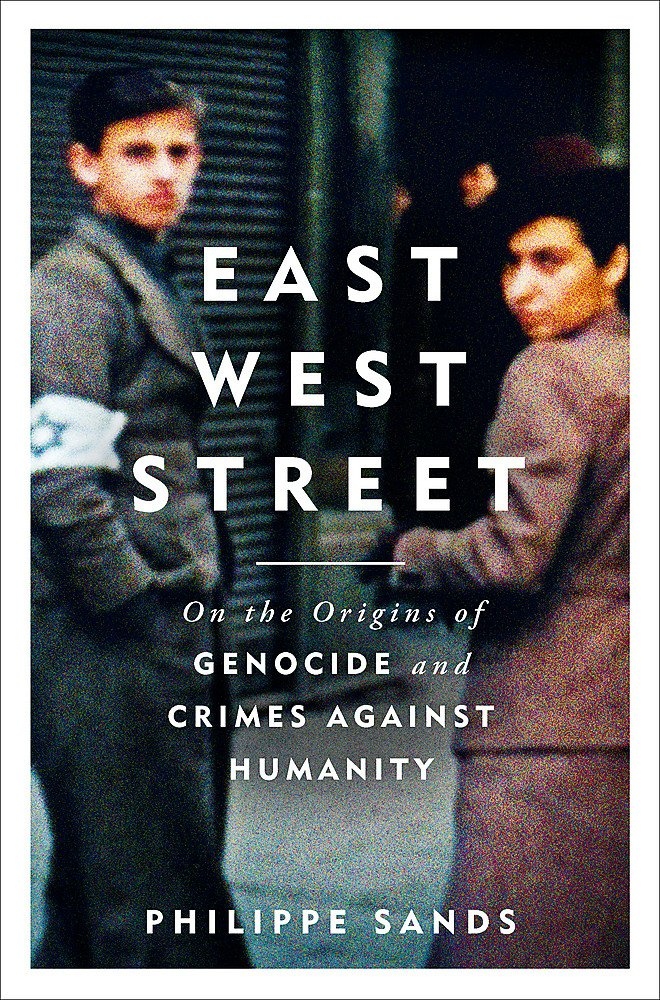East West Street by Philippe Sands
A fascinating and gripping read, exploring the origins of international law
 East West Street - On the Origins of Genocide and Crimes Against Humanity
East West Street - On the Origins of Genocide and Crimes Against Humanity
By Philippe Sands
Weidenfeld & Nicholson, London
ISBN: 978-1474601900
Reviewed by Alec Gilmore
A book for two readers. One, anyone over 80 (maybe pushing 90), old enough to remember the horrors of Europe in the 1930s but too young to appreciate their significance. The other, anyone under 70 who grew up with a general awareness of ‘crimes against humanity’ and ‘genocide but took it for granted that they had always been there. Wrong.
Prior to 1946 ‘Crimes against Humanity’ (the phrase) was unknown and ‘Genocide’ (the word) didn’t exist. They were the brainchild of two strong, independent Ukrainian characters in a city you are unlikely to have visited, would find difficult to locate and whose name (Lwow) you may not easily pronounce. Both were professional lawyers, grew up only a few hundred yards apart, though hardly aware of each other, and despite their common concerns focused on two quite different emphases, one ‘human rights’ (on individuals) and the other ‘genocide’ (on groups).
One (Lauerpacht) was responsible for the bill of rights which paved the way for the Universal Declaration of Human Rights, with strong backing from the UK. The other (Lemkin) was more concerned with tribes, races or simple minorities. Both were to some extent a by-product of the Nuremberg Trials, motivated primarily but not entirely by the treatment of the Jews.
While endorsing Crimes against Humanity the Nuremberg judges were reluctant to accept genocide as ‘a crime under international law’ but in 1948 that judgement was overruled when the UN General Assembly adopted The Convention on the Prevention and Punishment of the Crime of Genocide, the first human rights treaty of the modern era. Lemkin had successfully established his point and nations were invited to sign up, though sadly they were not falling over themselves to do so.
Welcome to the new (post WW2) international world. East West Street is the story of how it all happened, laying the foundations for a new internationalism. Sadly, though not surprisingly, neither seemed to be aware of Helwys, and even more sadly the Church (or churches) seem to have no part in their story, but Baptists of all people are entitled to savour the moment, and judging by the number of times these days I find myself being told (or reminded) that Baptists have always had Freedom and Religious Liberty for All high on their list of priorities, the time is ripe for action.
This has not always been obvious. I don’t recall being particularly aware of it in my college training and I well remember that when our obviously well informed (adult) Sunday School Superintendent tried regularly in the 1930s to interest us in what was happening in Germany (Niemöller, Nazism and the Jews) he got a lot of stick from the ‘that’s-not what-we-come-to-Sunday-School-for’ brigade. The change therefore is certainly welcome.
Whether it has yet reached the pews I am not sure but for Baptists this bestseller comes with a capacity to turn a spark into a flame. A fascinating and gripping read. One 60-year-old said it was ‘like a who-done-it — simply couldn’t put it down!’
Alec Gilmore is a Baptist minister
Baptist Times, 22/01/2021